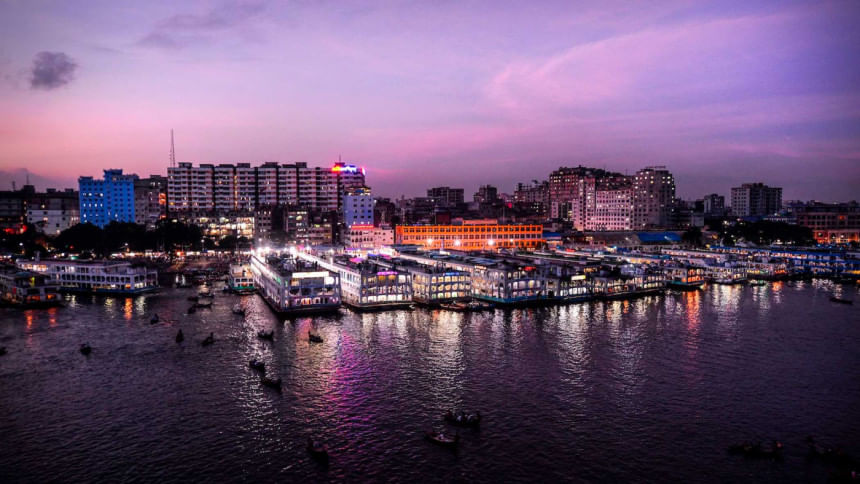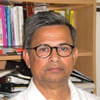Thinking big beyond the LDC graduation

Bangladesh is a surprising success story. Emerging out of war and destruction in 1971, few in the world had any optimism about the country's future. Today, Bangladesh is a rising economic power, as evident from its graduation from the least developed country (LDC) category to the developing country group. For Bangladesh, it's like a rebirth, as we see the consistent growth and success stories on many fronts. This graduation is another testament and a major milestone in the development journey of the country.
Back in 2018, Bangladesh met all three United Nations (UN) eligibility criteria—per capita gross national income (GNI), human asset index (HAI), and economic vulnerability index (EVI)—for graduation. Indeed, the country achieved higher than the required scores in GNI—USD 1,272 (minimum requirement is USD 1,230)—HAI—72.8 (minimum requirement is 68) and EVI—25 (requirement is 32 or below). Thus, Bangladesh's performance was well and above the thresholds in all three areas. But due to the Covid-19 pandemic, the normal three-year period for transition was extended to five years. The graduation will now formally take place in 2026. Bangladesh hopes to be in the upper middle income countries (UMIC) group in 2031, and, finally, achieve the developed country status in 2041.
Against this backdrop, there is a new hope in the country for a much better and brighter future. However, there are some absurd concerns among many due to the loss of access to cheaper lending money for development assistance, loss of duty-free and quota-free export, and a more competitive export market in the post-graduation period. This has reportedly made many "worried" in the ready-made garment (RMG) sector—particularly because of the loss of the generalised system of preferences (GSP) for Bangladeshi products. It is expected that the five-year transition period to graduation will provide the government and other stakeholders enough time to deal with the upcoming challenges—including capacity-building and general preparedness.
Prime Minister Sheikh Hasina presided over much of the economic development and progress achieved in the country over the last 13 years. As a result, her government is largely credited for taking the country to this new height. The prime minister, at a reception in her honour, gave a clapback to the "bottomless basket" storytellers. She credited, with her usual humility, the hard working people of Bangladesh for the country's graduation to the developing country group. Under her leadership, Bangladesh's GDP tripled from USD 103.5 billion in FY2008-09 to USD330.2 billion in FY2019-20. Even during the pandemic, the expected growth rate did not fall as much as feared. The economy is moving forward, with an estimated per capita income of more than USD 2,000 in 2021—more than the per capita income in India and Pakistan. In a recent statement at parliament, the prime minister reiterated her promise to make Bangladesh a developing country. "We will have to take many steps to move Bangladesh forward; we are also taking preparations (to that end)," she added.
Since Bangladesh continues to grow, there are good reasons for thinking big and beyond the graduation as an overriding message for all—the elected leaders, politicians, bureaucrats, policymakers, business owners, investors, educators, and other partners in development—to recognise and pursue some specific development objectives in order to navigate the uncertain future ahead.
For Bangladesh, the first and foremost goal should be a robust and effective Covid-19 recovery plan and strategies for healthcare services to ensure protection against the pandemic in order keep the wheels of the economy running. The pandemic is not over yet, and can potentially turn into a major health crisis, with new deadly variants surfacing every other month. The public healthcare system needs special attention to ensure better assessment, tracing, and medical treatment to rebuild resilience against the pandemic.
Second, the pandemic has once again widened the gaps between the poor and the rich in terms of wealth and income inequality. The growing disparity and inequality will further marginalise the poor and the most vulnerable groups in the country. Some of the gains achieved over the years with regard to poverty reduction have already been lost due to the pandemic and the consequent loss of income opportunities by the poor. Moving forward, the economic recovery plan must be based on human development measures, such as re-training, education, health, poverty reduction, food security, and gender equity and empowerment. The huge global shifts require the right skills, new perspectives, and understanding to navigate the uncertain future.
Third, climate change, internal displacement, and migration will turn out to be major obstacles to development for Bangladesh. According to the updated Groundswell report of the World Bank, published in September 2021, the South Asia region may see 40 million internal climate migrants by 2050; of them, more than one-third are likely to be in Bangladesh. Despite the progress made so far with climate adaptation in the country, the issue of internal climate migrants or displaced people has not been adequately addressed. In this context, the protracted Rohingya crisis has placed a strain on the economy as well as created various socioeconomic, environmental and security issues for Bangladesh that demand urgent solutions from the international community.
Finally, steps should be taken to make the cherished transition more sustainable in the post-LDC period by strengthening democratic institutions, human rights, justice and equity, striking out corruptions at all levels, including public services, and establishing the rule of law in the country against any nepotism and practices of political protection. There is also a need for exposing misinformation and, at the same time, better communication with people for engaged citizenship.
Bangladesh has truly come of age in its 50 years as a development model. The LDC graduation presents many opportunities to aggressively brand the country globally. If this can be done, Bangladesh can easily become a member of the developed country group by 2041. We are all for it.
Dr Mohammad Zaman is an international development specialist and an advisory professor at the National Research Centre for Resettlement of Hohai University in Nanjing, China.

 For all latest news, follow The Daily Star's Google News channel.
For all latest news, follow The Daily Star's Google News channel. 



Comments